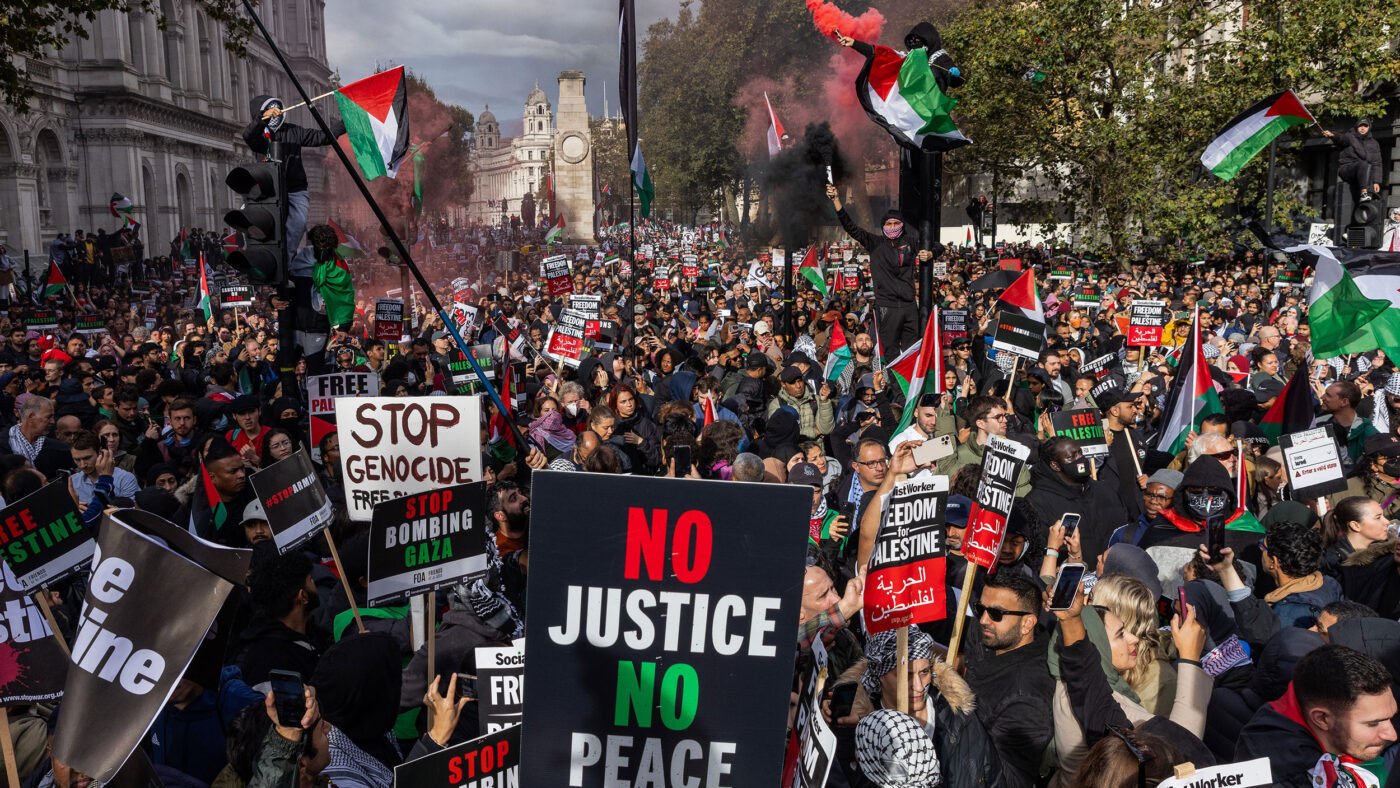Following days of heated debate about whether a pro-Palestinian demonstration on Armistice Day should be banned, the Metropolitan Police Commissioner Sir Mark Rowley has announced that the demonstration can go ahead.
Although the right to protest is protected under article 11 of the Human Rights act, Rowley could have applied to the Home Secretary Under section 13 of the 1986 Public Order Act to prohibit public processions in order to avoid serious public disorder. If he had, it is likely that the Home Secretary, who has labelled the demonstrations as ‘hate marches’, would have approved the request.
Instead, the Commissioner decided to allow the demonstration to go ahead. Following a risk assessment, it was determined that the police can effectively safeguard Remembrance Day events and ensure public safety. Rishi Sunak declared in response to the decision, that the ‘Met police will be accountable’ for the events of the day and public safety.
Recent pro-Palestinian demonstrations have shown that there is reason to be concerned about public safety. There have been several violent incidents during protests, including an attack on a 78-year-old poppy seller in Edinburgh by pro-Palestinian demonstrators. The police have also been vastly outnumbered by demonstrators in London, and were unable to stop hate speech and expressions of support for terrorism offences – with few arrests made days after the demonstrations. Despite these concerns, it is right for the Commissioner to base his decision on operational considerations and risk assessments rather than political pressure.
Now that their right to protest has been granted, the responsibility falls upon the organisers of the demonstrations to consider whether it is appropriate to carry on with the demonstration on Armistice day. If they go ahead, they may alienate many people, even those sympathetic to the suffering of Palestinians.
Organisers need to consider public sentiment and the sensitivities of the day. The values that British soldiers have fought for and are marked on Remembrance Day stand in direct contrast to some of the messages that have been displayed prominently in the demonstrations. Although not all participants support terrorism and Hamas, and not all hold antisemitic views, the demonstrations have been plagued with antisemitism and calls for violence.
These included chants in support of the destruction of the state of Israel, blaming all Jews for the war, calling for a Jihad – or a holy war against Jews – comparing Israel to the Nazis, for example by replacing the star of David with a Nazi swastika, denying Jews’ right to self determination and much more. Protests have extended far beyond legitimate political criticism of Israel, allowed by free speech, to racist chants and placards, some of which amount to hate speech. The presence of antisemitism has been prominent enough to harm community cohesion and make British Jews feel unsafe.
Some of the organisers of these demonstrations also have close links to Hamas or have in the past expressed support for the terror organisation. One of the organising groups is Friends of Al-Aqsa, whose founder and chairman Ismail Patel has referred to Hamas as a noble resistance movement. He also reportedly denied the massacre committed by Hamas on 7 October, in which more than 1,400 Israelis, were tortured, maimed and killed, including children and babies. Another organiser, the Palestinian Forum in Britain, counts as one of his co-founders the former Hamas terrorist Muhammad Qasim Sawalha, who now lives in London. The Palestinian Solidarity Campaign, whose patrons include Jeremy Corbyn and Ken Loach, also has a long history of peddling antisemitism.
Demonstrators have become increasingly belligerent and provocative. They have intimidated people in public spaces including on tubes, in train and tube stations, and in McDonald’s and Starbucks. They have frightened poppy sellers in Charing Cross station and stripped poppies off a cenotaph in Rochdale and replaced them with Palestinian flags. It is therefore doubtful that the organisers of Saturdays’ demonstration can guarantee that protestors, inspired by inciting messages, won’t break away from the march, planned to go between Hyde Park Corner and the American embassy, and try to cause disruption in Parliament Square or the cenotaph.
The issue with the demonstration does not only concern public safety. Many of the violent and hateful messages present in the demonstrations are problematic at any time, but are particularly inappropriate on Armistice Day. Demonstrators have already shown disrespect for the poppy – a symbol of suffering and sacrifice. Even if order is kept, the protest will be perceived as disrespectful to a nation remembering and honouring the enormous sacrifices it made in fighting oppressive, authoritarian regimes and terrorism, in defence of democratic values and freedoms.
Click here to subscribe to our daily briefing – the best pieces from CapX and across the web.
CapX depends on the generosity of its readers. If you value what we do, please consider making a donation.


